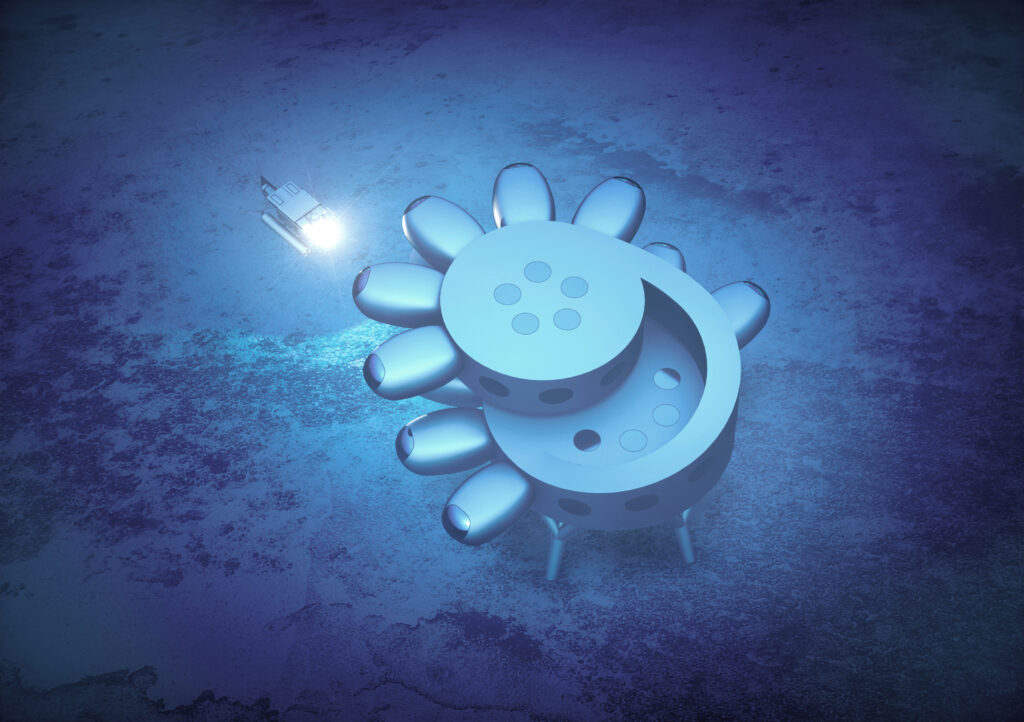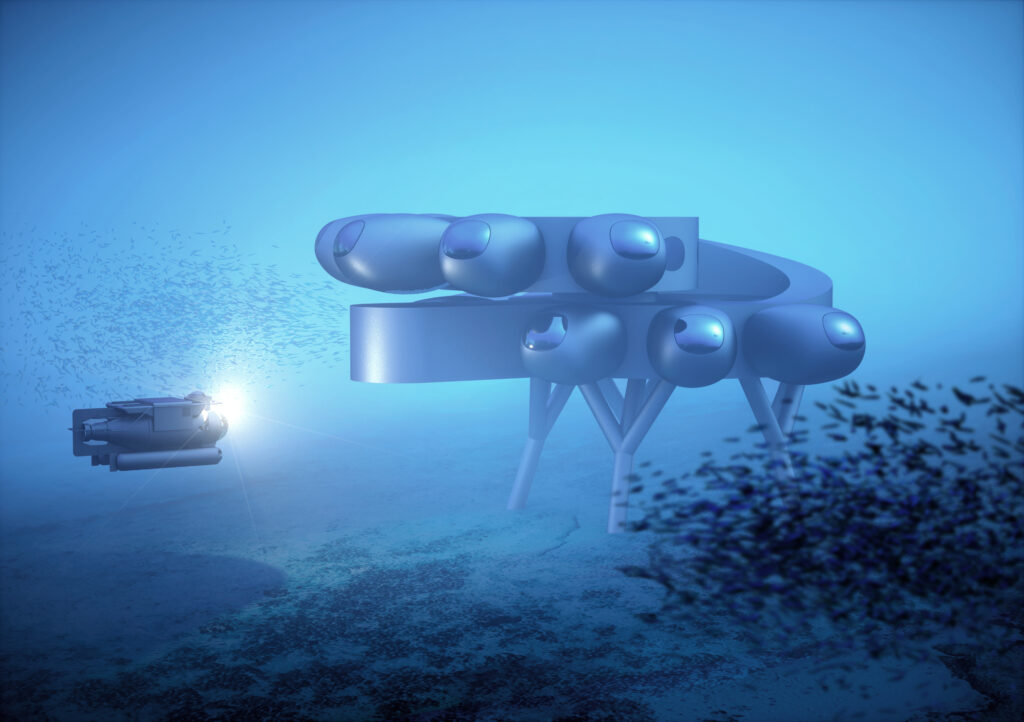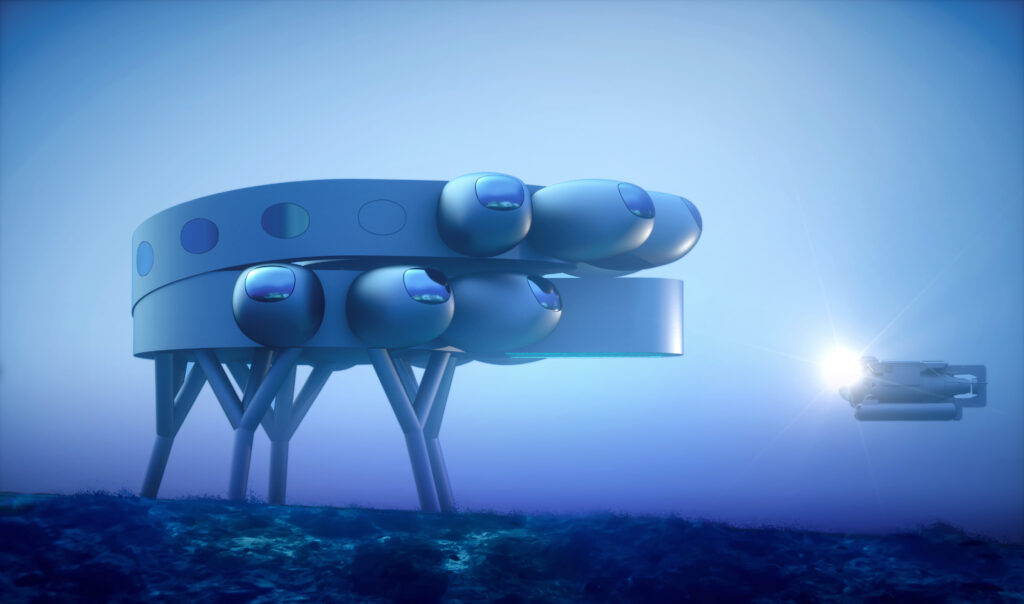The oceans represent more than 99 per cent of global habitat but only 5 per cent has been explored to date. Will underwater scientific research station Proteus spill the secrets of the deep? Olivia Palamountain reports
Aquanaut ocean explorer and environmentalist Fabien Cousteau (the first grandson of Jacques-Yves Cousteau – the famous French naval officer and ocean explorer) is looking to turn the tides of sub-aqua research with his vision for Proteus, the world’s most advanced underwater scientific research station and habitat.
A platform for global collaboration amongst the world’s leading researchers, academics, government agencies and corporations, Proteus will address humanity’s most critical concerns: medicinal discoveries, food sustainability, and the impacts of climate change.
Conceived by the Fabien Cousteau Ocean Learning Center (FCOLC) and designed by Yves Béhar and Fuseproject, Proteus has been imagined as an underwater version of the International Space Station. It will be located off of the Island of Curaçao, 60 feet under the Caribbean Sea. “As our life support system, the Ocean is indispensable to solving the planet’s biggest problems. Challenges created by climate change, rising sea levels, extreme storms and viruses represent a multi-trillion-dollar risk to the global economy,” stated Fabien Cousteau.
“As our life support system, the Ocean is indispensable to solving the planet’s biggest problems. Challenges created by climate change, rising sea levels, extreme storms and viruses represent a multi-trillion-dollar risk to the global economy,” stated Fabien Cousteau.  “Proteus, contemplated as the first in a network of underwater habitats, is essential to driving meaningful solutions that protect the future of our planet. The knowledge that will be uncovered underwater will forever change the way generations of humans live up above.”
“Proteus, contemplated as the first in a network of underwater habitats, is essential to driving meaningful solutions that protect the future of our planet. The knowledge that will be uncovered underwater will forever change the way generations of humans live up above.” Proteus is envisioned to be more than four times the size of any previously known underwater habitat, with state-of-the-art labs, sleeping quarters, and a moon pool.
Proteus is envisioned to be more than four times the size of any previously known underwater habitat, with state-of-the-art labs, sleeping quarters, and a moon pool.
Sustainably powered by hybrid sources including wind, solar, and Ocean Thermal Energy Conversion (OTEC) it will allow inhabitants to grow fresh plant life for food in its underwater greenhouse and will include a full-scale video production facility.

A saturated environment (saturation is when the bloodstream is equalised with suitable gasses at the pressure of the surrounding water, enabling humans to live, work and explore underwater) will allow scientists, aquanauts and divers to conduct continuous diving and data collection on the ocean floor for use in the marine research platform.
The discovery of new species of marine life, a better understanding of how climate change affects the ocean, and testing of advanced technologies for green power, aquaculture, medicines and robotic exploration are all part of the plan.
Globetrender highlighted Underwater Exploration as a major trend for the new decade in its Future of Luxury Travel Forecast: 2020-2025, which can be downloaded below.



